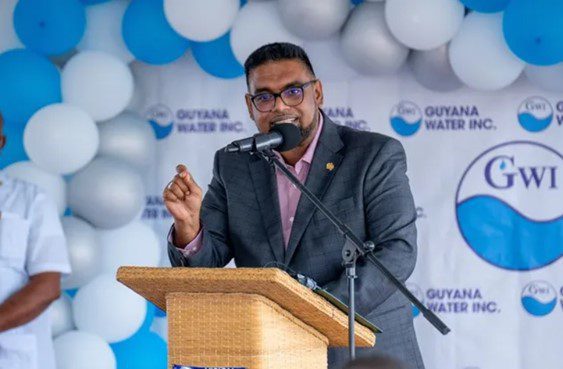Guyana President Dr. Irfaan Ali emphasized the critical need for investments and decisions today to be adaptable to the rapidly digitalizing world, especially with the rise of artificial intelligence (AI) and digitization.
Speaking at the opening ceremony of the Energy Conference and Supply Chain Expo on Tuesday, he stressed that future advancements in energy and technology demand forward-thinking investments that align with these digital transformations. He warned that failing to keep up with these changes could jeopardize future competitiveness.
Dr. Ali pointed out that Guyana is already taking steps in this direction, outlining plans to digitize the healthcare system and launching the Guyana Digital Initiative to cultivate local tech expertise. Additionally, the government is set to unveil the first digital school in the Caribbean. These efforts, the president explained, are part of Guyana’s broader strategy to remain relevant and competitive on the global stage.
A hub for data centers
In a panel discussion on Wednesday, Aly Orady, supercomputer engineer and founder of Tonal, underscored the transformative role of AI across various sectors like healthcare, legal services, and engineering. Orady highlighted the projected growth of the global AI market, which is expected to soar from $387 billion to $1.3 trillion. However, he pointed out that such rapid AI growth will demand significant energy resources, especially from data centers, which consume large amounts of power.
Orady identified Guyana as a potential leader in AI and digitization, given its strategic advantages in energy. As global data centers are expected to increase their share of overall energy consumption from 2% to 19% by 2028, Guyana’s low-cost energy and proximity to generation facilities place it in an advantageous position to attract these data centers. He urged the country to seize the opportunity and position itself as a leader in the AI revolution.
AI and sustainable development
Jay Persaud, EY Global Emerging Technology Ecosystem Leader, echoed Orady’s sentiments, emphasizing that Guyana is well-positioned to build a transformative roadmap by investing in technology and infrastructure. Aligning technology and energy development strategies, he noted, would yield significant returns. He highlighted that major companies are already using AI to enhance experiences and maintenance strategies, and the energy sector’s increasing reliance on AI will drive demand for skilled technology professionals.
Persaud suggested that Guyana could build on existing programs like the One Guyana Digital Initiative and the Guyana Digital School to foster local tech entrepreneurship and innovation. Establishing AI data centers, coupled with digital skill training, would further solidify Guyana’s tech sovereignty and create opportunities for both national and global use.
The One Guyana Digital Program, which successfully trained 365 students in December 2024, serves as a model. These graduates secured well-paying jobs in the tech industry after eight months of intensive training, marking a promising step towards Guyana’s digital future. The initiative was launched in February 2024 in collaboration with Toronto Metropolitan University and is part of a partnership between the Government of Guyana and Canada.















